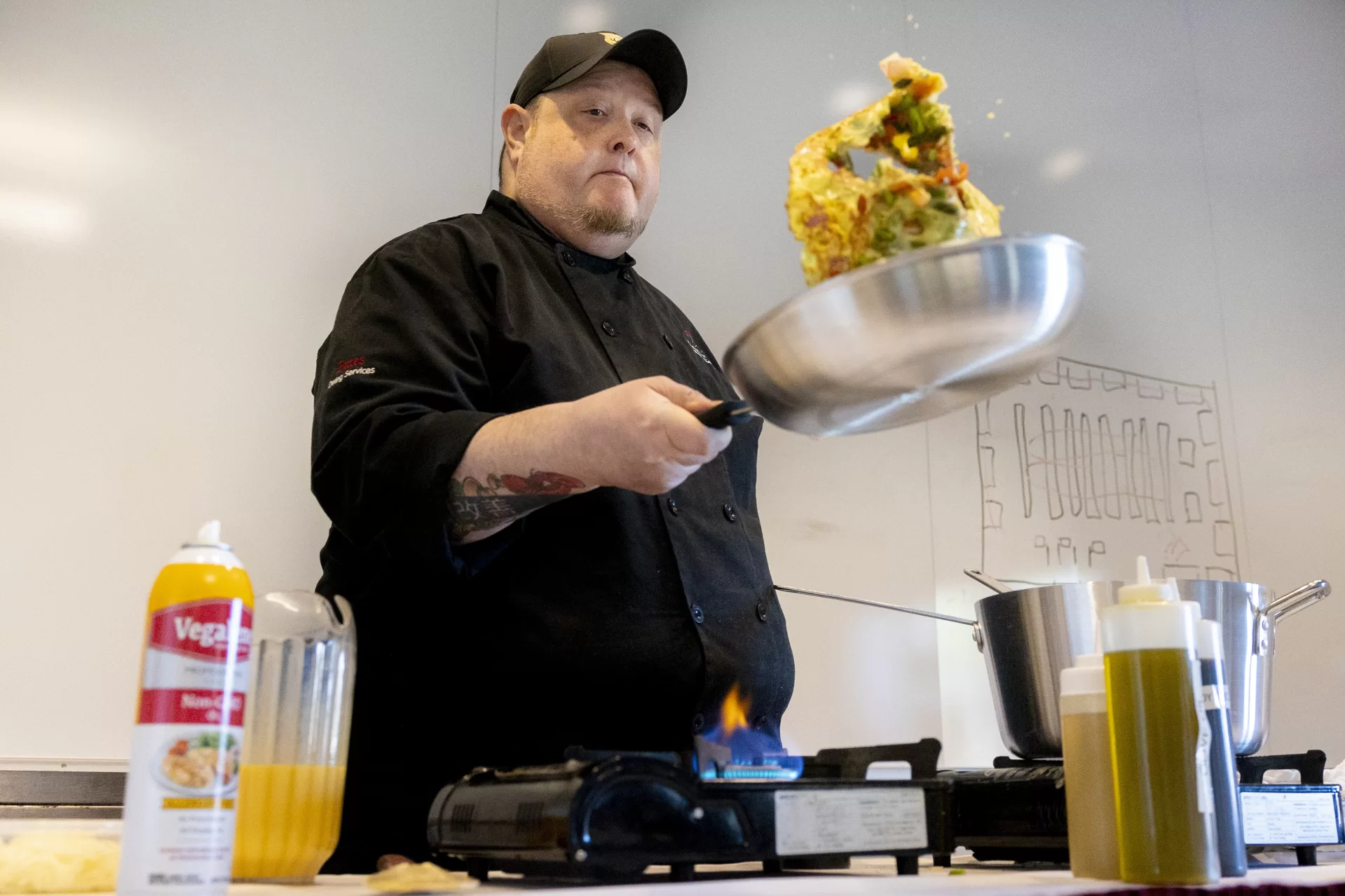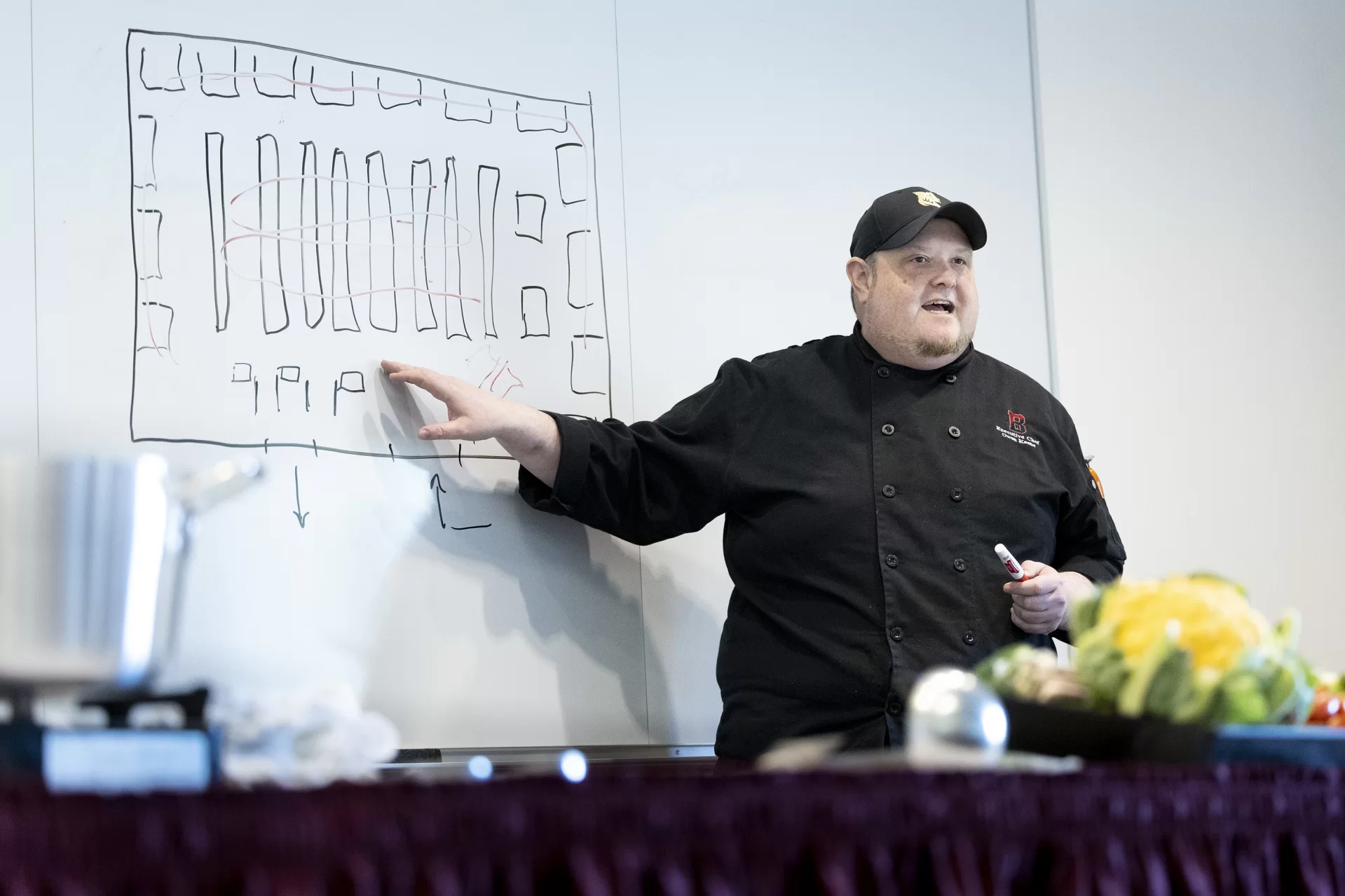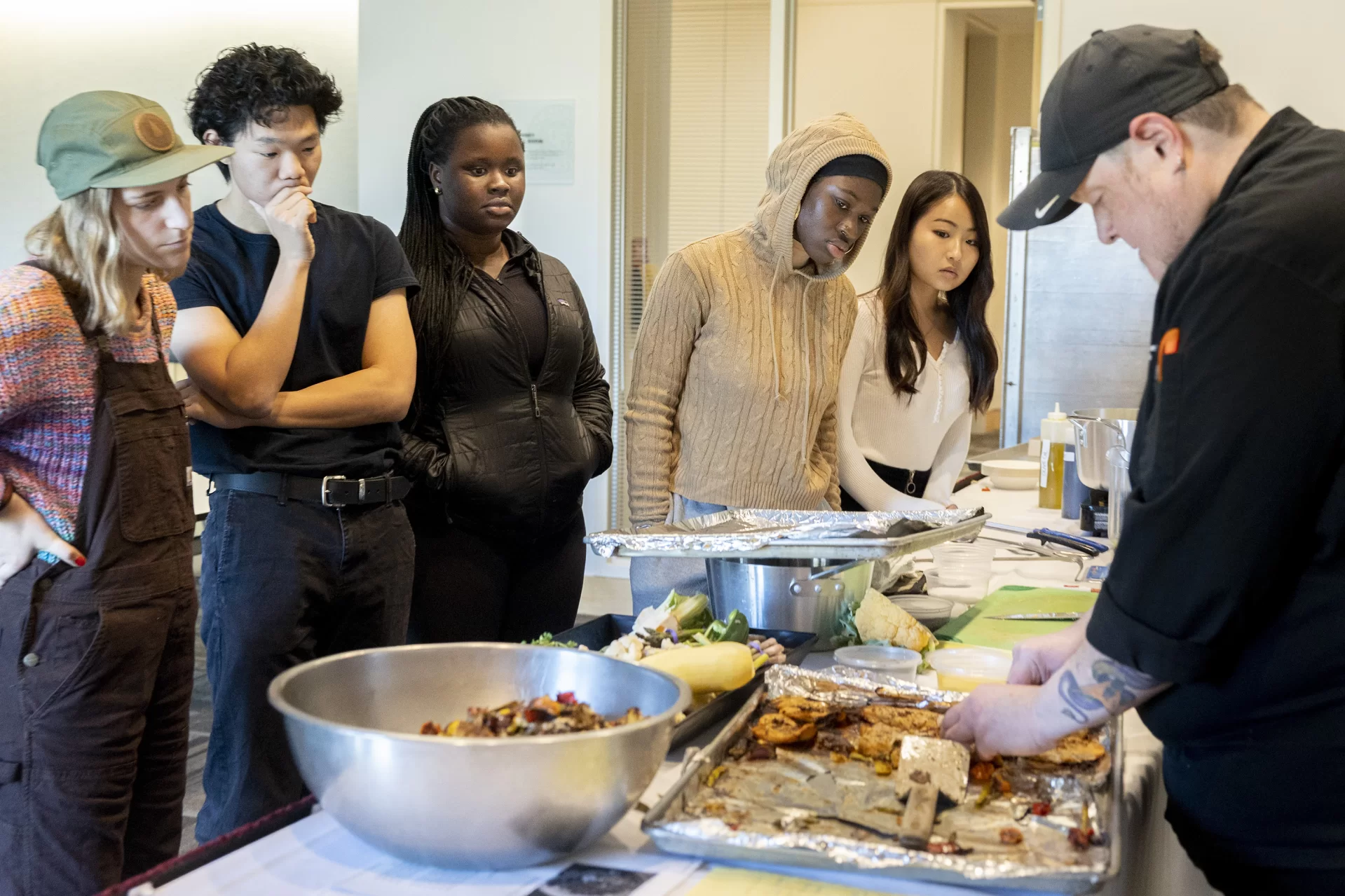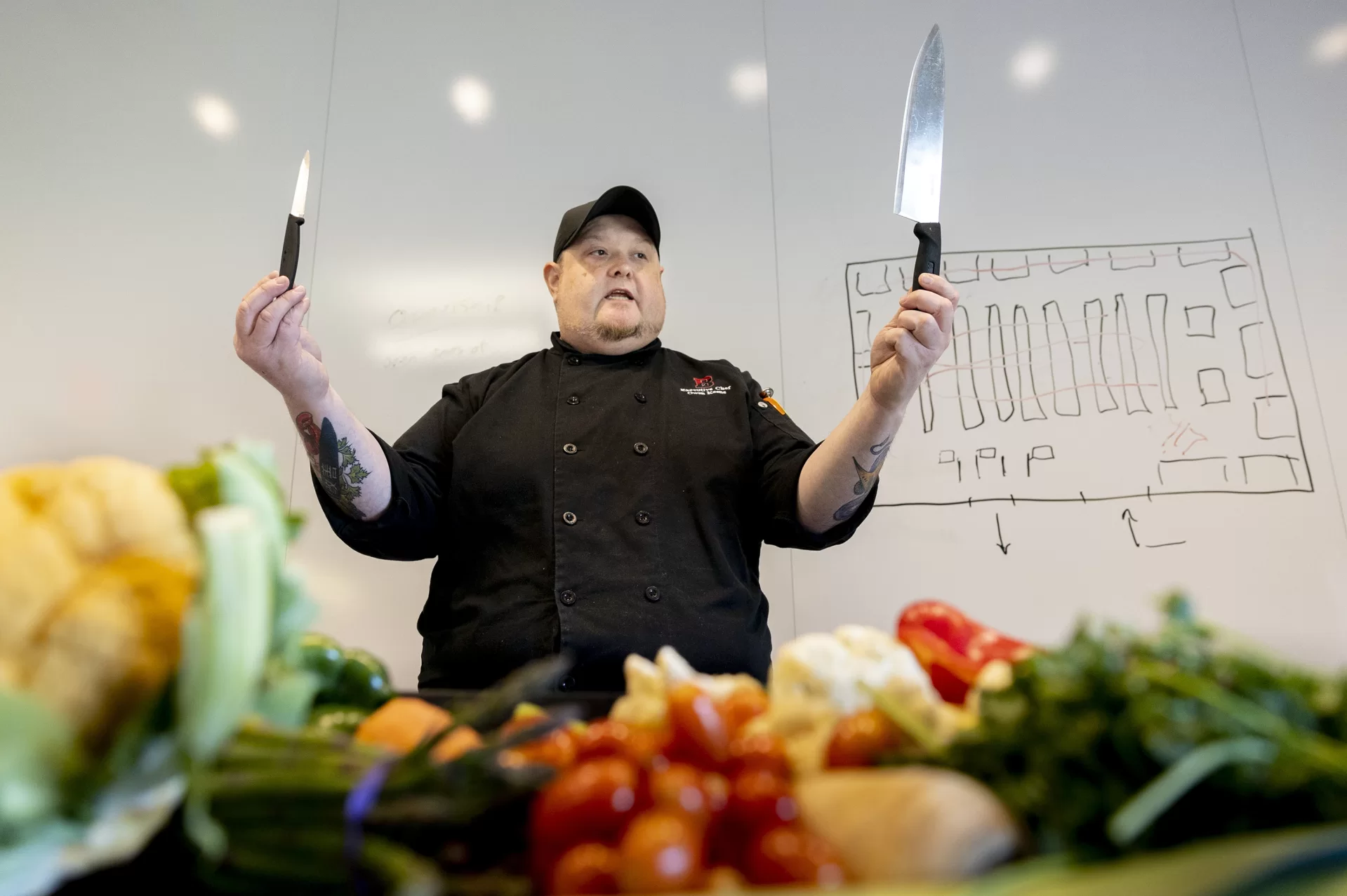
While most students were getting their lunches in the dining area in Commons, others made their way upstairs to watch Dining Services’ executive chef, Owen Keene, flip some omelets.
Keene was giving a cooking demo as part of the “Life After Bates” series from the Center for Purposeful Work and the Office for Intercultural Education. He used his kitchen and grocery-store prowess to impart some wisdom on students in the hopes that their post-grad lives will be a little less daunting, and a little more delicious.

Keene showed students how to make a veggie omelet, a vegetable soup, and a roasted vegetable and chicken pasta salad, all made from a small selection of ingredients.
“I just thought of the things I make at home — I didn’t want to get too technical,” says Keene. The recipes are adaptable too, he says, since different vegetables and combinations can be used for all three dishes.
Encouraging students to incorporate more fresh produce into their cooking is important, he says, but it can be new territory for a lot of them.
“A lot of people grow up thinking they don’t like vegetables, because they haven’t been cooked right,” says Keene, as he shares another nugget of wisdom: a little seasoning can go a long way, whether it’s a pinch of salt, a handful of parsley, or a splash of vinegar.

The first step is getting the ingredients, and while life experience can reveal some of the secrets of good shopping, a crash course can certainly help. Keene’s most important rule of thumb? “Don’t go shopping on an empty stomach,” he laughs.
Growing up, Gabrielle Brewer ’23 of New Britain, Conn., learned how to cook with her mother, a caterer. But after living alone during an internship last summer, she realized that grocery shopping was a whole new challenge. “I’d be shopping for one person, and then cook too much, and it would just get out of hand,” she said. Now, she’s thinking a lot about next year. “Having to live in an apartment and cook for myself, it’s always good to get a few tips.”
When it comes to shopping, Keene told the students that making a list — and sticking to it — can help keep you organized and on-budget. When it comes to putting produce on your list, it’s cheaper to buy in-season fruits and veggies. (The USDA puts out a handy guide on this topic.) Following the seasons also brings variety to the table, on top of being an opportunity to support local farmers.

But buying more fresh food comes with other concerns. “Use-by” dates, the impending wilting of leafy greens, and meat freshness are all factors in the mix, and Keene suggests getting a little more picky, and making grocery trips a little more frequent, especially if something like fish is on the menu, which is best bought day-of or day before.
Other students — and a recently graduated alumnus — came to Keene’s demonstration hoping to glean some new recipe ideas.
Helena Raddock ’24 of Warren, Vt., says she’s “not a soup girl,” like some of her roommates, but the omelet and veggie pasta are good items to add to her repertoire. “I only know how to make spaghetti and meat sauce, and rice,” says Raddock. “So I think it’s time to up my game.”
Recent graduate Ben Conner ’22 is now on the staff of the Center for Purposeful Work, and he was eager to attend the demo after doing the promotions for the event. “I can cook the same staple meal every day,” he says. “But, making the same pasta, broccoli, and chicken, five days a week can get a little bit old.”
With a few new recipes in their back pockets, and a few tips on stocking and using a kitchen, those who attended are a little more ready to tackle the post-grad life.

Here are some of the top tips and tricks he shared:
- A basic kitchen setup includes a few versatile non-stick pots and pans of different sizes, a French (or chef’s) knife, a paring knife, a vegetable peeler, a stick thermometer, and separate cutting boards to prevent cross contamination.
- Your list should reflect specific meals you wish to make, which can help you identify the groceries you need. Having a plan means you can make sure you aren’t buying more of what you already have.
- Pay attention to the best-by and expiration dates, and make sure you are using up what you have before buying new ingredients.
- Be adventurous and try some new foods. The internet is your friend, so head to YouTube, Instagram, or TikTok for ideas. You might find a new favorite way to eat your veggies, or a different kind of sauce to go with your favorite noodle dish.

Taking his own advice to try new foods, Keene, as well as his Dining Services team, continue their culinary education. For example, they’ve learned about cuisines from South America and Africa while attending conferences sponsored by the famed Culinary Institute of America.
It’s a challenge, he says, “to cook a cuisine from a place you’ve never been to before.” But he’s not at a loss for feedback. Students come to Bates from around the world, and they’re candid when it comes to reviewing international dishes.
“Sometimes they’re like, ‘Oh no, it isn’t like that at all.’ So I ask them to tell us how to do it the right way, and they’ll do that — we have students who will show us things that we didn’t know. And that’s a good thing: we should try different things.”




